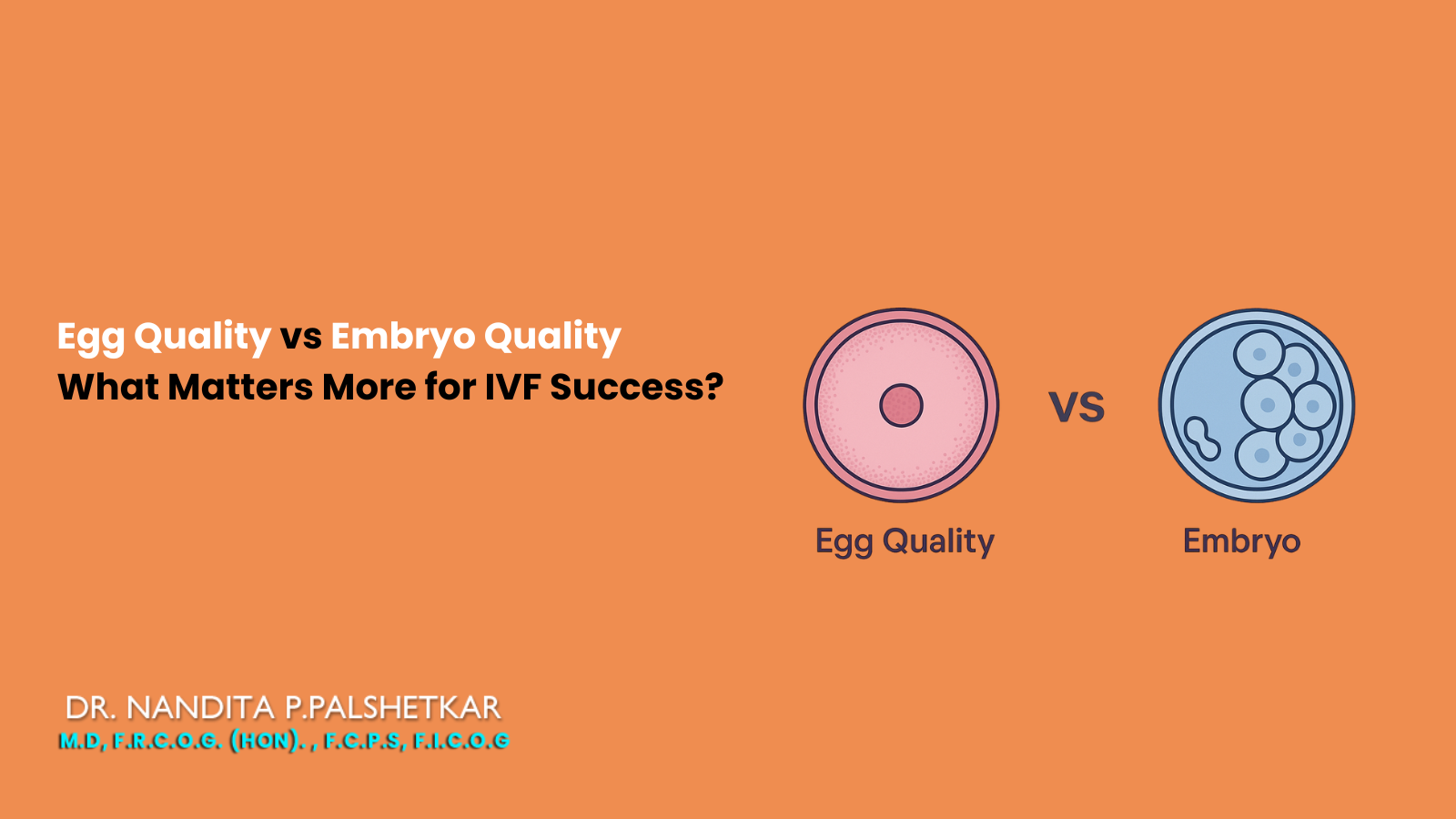

E-Brochure - Download Now!

Medical consensus, egg quality significantly declines after age 35, with the rate of decline accelerating in the late 30s due to natural aging affecting the eggs' genetic makeup and overall health. This decline poses challenges for achieving egg-quality IVF Success and highlights the importance of securing the best quality eggs for IVF. In this blog, we delve into the critical roles of both egg and embryo quality in IVF.
Egg quality refers to an egg's ability to mature, fertilize, and develop into a viable embryo, a key factor for Egg Quality IVF Success. Age, lifestyle, genetics, and underlying medical conditions can significantly impact egg quality. High-quality eggs are essential because they increase the chances of fertilization and reduce the risk of chromosomal abnormalities that might hinder successful embryo development, ensuring the best quality eggs for IVF.
Embryo quality is defined by an embryo's potential to implant and develop into a healthy pregnancy. This quality is influenced by the initial condition of the egg and sperm, the laboratory's culture conditions, and the genetic integrity of the embryo. In IVF, embryos are graded using specific systems, such as assessments on Day 3 versus Day 5 (blastocyst stage), which help determine their viability. This process, known as embryo grading in IVF, guides fertility specialists in selecting the embryos with the highest potential for a successful pregnancy.
Achieving success in IVF often comes down to two critical factors: egg quality and embryo quality. Both play a pivotal role in the pregnancy journey. Poor egg quality can lead to failed fertilisation or chromosomal abnormalities. In contrast, even a high-quality egg might not result in a viable embryo if sperm quality or lab conditions are suboptimal. In this blog, we compare these essential factors and explore strategies to improve both ensuring the best quality eggs for IVF and optimal embryo grading in IVF for a successful outcome.
Egg quality refers to an egg's ability to mature, be fertilised, and develop into a healthy embryo. Poor egg quality significantly increases the risk of fertilisation failure and chromosomal abnormalities. Ensuring the best quality eggs for IVF is essential, as they lay the groundwork for successful embryo development and subsequent pregnancy.
Even with high-quality eggs, the journey isn't over. Embryo quality, determined by sperm quality, laboratory culture conditions, and genetic integrity, is crucial for implantation and healthy pregnancy progression. Through embryo grading in IVF, specialists assess embryos on Day 3 or at the blastocyst stage (Day 5) to select those with the highest potential for success.
Egg quality lays the foundation for creating a viable embryo, yet embryo quality ultimately determines the success of implantation and pregnancy. Both factors are interconnected and critical in the IVF process. Improving egg health can enhance embryo outcomes, underscoring the importance of a comprehensive approach addressing both elements.
Adopting a balanced diet, taking supplements like CoQ10, DHEA, and folic acid, and reducing stress can boost egg quality and overall reproductive health.
Hormonal stimulation and preimplantation genetic testing (PGT) help select the best embryos, ensuring higher chances of successful implantation.
Procedures such as egg freezing preserve fertility, and Intracytoplasmic Sperm Injection (ICSI) can enhance fertilisation outcomes, further improving embryo quality.
Both egg and embryo quality are indispensable for IVF success. While high-quality eggs form the essential foundation, robust embryo quality is key for successful implantation and a healthy pregnancy. Patients should focus on overall reproductive health and discuss embryo grading with their fertility specialist to tailor treatment effectively. With the right approach and expert guidance, you can significantly enhance your IVF outcomes and take confident steps toward parenthood.
Are you struggling with IVF success? Consult your fertility expert, Nandita Palshetkar, to optimize your egg and embryo quality. Discover personalised treatment plans designed to enhance your reproductive health and boost your chances of a successful pregnancy. Take the first step today; your future awaits!